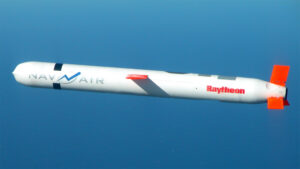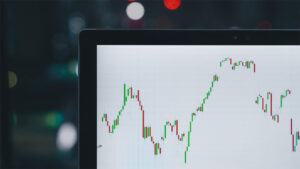There’s one massive hole we’ll need to fill if the green movement will ever work in the US…mineral resources. Thankfully we just struck a deal with our Aussie allies, who happen to have many of the key minerals and resources we need.
This deal will enable the Australians to contribute mineral resources to the American greentech industry in a way that will allow them to benefit from the incentives and subsidies in the Inflation Reduction Act (IRA).
While Australia is a significant producer of many necessary Greentech resources, it’s not a one-stop shop for everything. They’re also great at producing the raw ore, but the value add component isn’t their thing. Thanks to subsidies from the IRA, there will be an opportunity to bring value-add capabilities to the Outback.
But what about all the other US allies? Will they be able to tap into this deal? We must remember that there is an inner circle and an outer circle of allies…for now, only the inner circle gets to play.
Prefer to read the transcript of the video? Click here
Here at Zeihan On Geopolitics we select a single charity to sponsor. We have two criteria:
First, we look across the world and use our skill sets to identify where the needs are most acute. Second, we look for an institution with preexisting networks for both materials gathering and aid distribution. That way we know every cent of our donation is not simply going directly to where help is needed most, but our donations serve as a force multiplier for a system already in existence. Then we give what we can.
Today, our chosen charity is a group called Medshare, which provides emergency medical services to communities in need, with a very heavy emphasis on locations facing acute crises. Medshare operates right in the thick of it. Until future notice, every cent we earn from every book we sell in every format through every retailer is going to Medshare’s Ukraine fund.
And then there’s you.
Our newsletters and videologues are not only free, they will always be free. We also will never share your contact information with anyone. All we ask is that if you find one of our releases in any way useful, that you make a donation to Medshare. Over one third of Ukraine’s pre-war population has either been forced from their homes, kidnapped and shipped to Russia, or is trying to survive in occupied lands. This is our way to help who we can. Please, join us.
CLICK HERE TO SUPPORT MEDSHARE’S UKRAINE FUND
CLICK HERE TO SUPPORT MEDSHARE’S EFFORTS GLOBALLY
TRANSCIPT
Hey Peter Zeihan here coming to you from chilly Phoenix, where it’s a balmy 102 at ten in the morning. I don’t know how people do it. It’s only May. Anyway, back on May 20th or 21st, you’re gonna see this a few days later. The Americans strike a deal with the Australians that will allow the Australians to contribute their mineral resources to the American greentech industry in a way that they will benefit from the incentives and the subsidies that are part of the Inflation Reduction Act.
There’s a real hullabaloo of late about which countries can get access and which can’t, and Australia is a tight ally. It’s part of the inner circle and most importantly it has a preexisting free trade agreement with the United States. And so they are the source of roughly half of the world’s lithium. And they are a significant producer of rare earths and zinc and copper as well. So this definitely scratches a lot of it, just not all of them. They don’t do molybdenum, they don’t do silver or they don’t do a huge amount of bauxite, although they have some. No chromium. So, you know, it’s not like this is a one stop shop for everything The United States needs, but it’s a real big step in the right direction.
Kind of two follow on thoughts from here.Number one, while the Australians are great at producing the raw ore. They do very little value add themselves and one of the things that the IRA is attempting to do is to build up a parallel supply chain that’s independent from China for processing of these raw materials into metals and then on into intermediate products. Australia is a logical place for a lot of that. I mean, yes, Labor costs are high relative to other places in the world, but since the minerals are right there and the energy is cheap, especially if you want to do stuff with solar in the freaking outback, there’s a lot of upward potential. They just need the investment and a decision that they want to move up the value added chain and the IRA will probably help with that, now you’ll have some American Australian fusion projects that are located on both sides of the Pacific. The second thing are the countries that may be able to join the Australians in kind of this inner circle. The United States has a handful of free trade agreements. Obviously the most famous one is NAFTA, and obviously they already qualify for these incentives. But the U.S. also has trade deals with the Koreans and the Japanese and in the world to come. These are countries that are involved in manufacturing. They’re going to do one more and more processing in the value add for things like battery chassis themselves. And so it still needs to be negotiated, but it’s starting from a very strong position and we should expect those to join.
Who’s not going to join is the European Union. Getting a free trade deal with the European Union has always been something that on both sides of the Atlantic has been flirted with, but it’s never really gone anywhere. A lot of the European countries, most notably the French, are highly protectionist, and the idea of exposing themselves to the American market at all is just not something they are even willing to consider. But more importantly, Europe is in demographic collapse and they’ve simply run out of people who are under age 40, the folks who normally do the consumption. So the United States no longer has any sort of economic rationale for an economic partnership over the long term with Europe, because it would just mean that Europe would be product dumping on the Americans. Similar situation for Korea and Japan, but there’s a big strategic argument that these are allies that have to be kept close as part of maintaining a presence in the Asian theater. In the case of Europe, in many cases, it’s a little bit more of a problem than it’s worth. And while there are independent European powers like the Brits or maybe the Swedes or in the Poles, that may be worth it. If it’s all part of a network of the EU, then the cost is simply too high. So there’s definitely an inner circle and an outer circle among the allies. And when it comes to greentech, only the inner circle can play. Alright, that’s it. Everyone take care.







